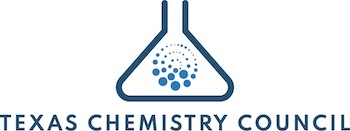Complete Story
05/09/2025
Industry Coalition Petitions EPA to Amend TSCA PFAS Reporting Rule
Chemical Watch | Terry Hyland | May 6, 2025
Industry Coalition Petitions EPA to Amend TSCA PFAS Reporting Rule
A coalition of chemical companies has petitioned the US EPA to amend its TSCA PFAS reporting rule to include categorical exemptions and production volume thresholds typically included in chemical reporting rules.
The TSCA section 21 petition comes less than a week after the EPA announced a slew of actions to address per- and polyfluoroalkyl substances (PFAS), including hinting at changes to the 2023 TSCA section 8(a)(7) reporting rule to avoid "overburdening small businesses and article importers" (see box).
That announcement, however, lacked details as to how the agency planned to address the upcoming PFAS reporting obligations, which are set to begin on 11 July. As a result, the TSCA section 21 petition – which requires that the EPA respond within 90 days – could force the agency to provide more clarity on how it intends to proceed.
Submitted on 2 May, the petition calls on the EPA to withdraw the current PFAS reporting obligations that are set to begin in July, to give the agency "sufficient time to repropose the rule" and issue a new reporting deadline.
It also sets out specific changes the coalition would like to see, that would narrow the reporting obligations from the 2023 rule.
The petition calls on the agency to exempt from the PFAS reporting rule those activities and categories carved out from the quadrennial chemical data reporting (CDR) rule and other TSCA section 8(a) rules.
Specifically, the petition calls for a reissued PFAS reporting rule that exempts:
imported articles;
any PFAS that is manufactured or imported as an impurity, byproduct, R&D material or non-isolated intermediate; and
PFAS manufactured in quantities of less than 2,500lbs.
In addition, the petition calls on the EPA to remove the current rule’s requirement that companies must submit "all existing information concerning the environmental and health effects" of covered PFAS.
Instead, the updated rule should allow companies to provide ‘robust summaries' of any health and environmental studies, similar to the approach used by ECHA.
The petition does not seek any changes to the definition of PFAS chemistries covered by the rule, which could include more than 1,460 different compounds.
Seeking clarity
David Fischer, counsel with Keller & Heckman, who submitted the petition on behalf of the coalition, said that as of now, companies subject to the rule and those advising them must still act as if the reporting period begins in July.
The petition is an effort to try to get more clarity around the EPA’s earlier announcement on PFAS, Fischer told Chemical Watch News & Insight. It is also meant to help the agency, he said, by providing a rationale for the requested changes to the PFAS reporting rule, along with precise edits to the regulation itself.
An appendix included with the petition sets out the provisions of the current rule that could be changed to add the requested exemptions.
Fischer said he anticipates that the EPA "would be receptive" to most, if not all, of the changes requested in the coalition petition. "If you want to diminish burden, this is how you do it," he said.
The EPA did not provide further details on its plans, but with the reporting period set to begin in the coming months, the agency is expected to provide more details soon.
'Mountains of data’
As currently crafted, the TSCA section 8(a)(7) rule requires companies to submit reports on the manufacture, import, processing and use of a broad array of PFAS, going back to 2011, with no exclusions for article importers, small businesses or de minimis quantities of PFAS.
According to the petition, the lack of exemptions to the reporting mandate will ultimately inundate the EPA "with mountains of data on potentially thousands of PFAS, outstripping its capacity to systematically review and timely utilise these data".
Fischer said the process of preparing for the PFAS reporting has been "overwhelming" for many stakeholders, many of whom were not previously subject to TSCA and thus are not familiar with the statute.
Moreover, the agency is already having trouble with its central data exchange (CDX) online portal for submitting information, he said.
While a balance is needed to ensure the EPA gets the information it needs, the amount of data under the rule as currently crafted "could be astronomical", he said
In addition to limiting the rule, Fischer also said it would be nice to know more about what the EPA plans to do with the information it receives, given all the time and money companies have already spent preparing for the reporting mandate.

